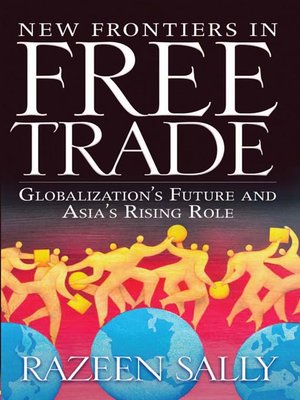
Sign up to save your library
With an OverDrive account, you can save your favorite libraries for at-a-glance information about availability. Find out more about OverDrive accounts.
Find this title in Libby, the library reading app by OverDrive.



Search for a digital library with this title
Title found at these libraries:
| Library Name | Distance |
|---|---|
| Loading... |
Razeen Sally argues that international trade policy has lost its way. Trade policy has become disconnected from 21st century business and consumer realities. The World Trade Organization and free trade agreements have outdated negotiating models and yield diminishing returns. The world's fastest growing economies are those in Asia that have embraced freer trade and global integration unilaterally, without waiting for trade negotiations.
Hence, the priority should be bottom-up unilateral liberalization, with China's opening to the world economy leading the way and setting the example for others in Asia and beyond. Liberalization should now focus more on domestic regulatory barriers. The post-Doha WTO will still be important, but more as a forum for strengthening trade rules than for driving further liberalization. The biggest danger, though, is complacency and "reform fatigue," which threatens to halt globalization's advance.
Sally makes a vigorous case for the benefits of free trade and provides a penetrating analysis of the dangers confronting the world trading system. Inspired by the precepts of Adam Smith and David Hume, he sets out practical prescriptions for getting trade policy back on the rails as part of a refreshed agenda for freer trade and freer markets that is relevant to the rise of Asia and 21st century globalization. Informative; well-argued; and, above all, highly readable, this book is a stimulating contribution to the emerging debate on where trade policy should go in the post-Doha world.







